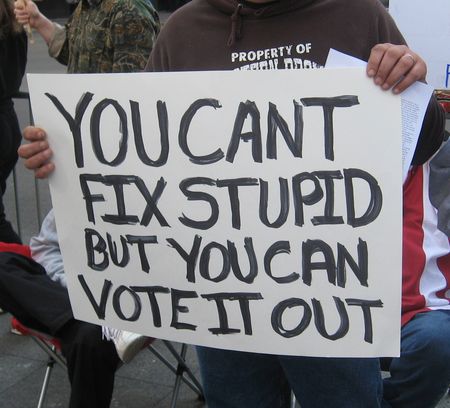Behind media massage about double lavatories in the Winter Olympics Areal in Sochi, in absolute shadow of political negotiations about new government and unsurprising information about secret meetings of politicians and businessmen in the Czech Republic, there are also really important decisions made by state officials with real impacts to real people. Media should speak about these ones every day. Unfortunately, they do not. Want an example? State regulations that will influence business activities of hundreds of companies and that will probably destroy many jobs. Here we go!
Les Enfant Terribles of European economies
Entrepreneurs producing alcohol are continuously seen as “les enfants terribles” of European economies, together with manufacturers of tobacco products and business subjects from oil industry. This aspect is valid all over the world. It could be proven by an existence of indirect tax system through which consumption of all these commodities is burdened by high excise taxes. Rates of excise taxes (duties) create a final component of prices for all these goods and, of course, make their consumption dramatically more expensive.
The history of regulation has shown many times (e.g. a methanol scandal in the Czech Republic, 2012) excise duties and other state regulations generating cost items for producers and consumers is a key motivator for producers from both shadow and black economy.
One does not have to be rocket scientist to understand all of this. If I can sell a wagon of untaxed cigarettes illegally, under the condition that 80 % of the final market price is made by tax, I will really, really make a lot of money.
Doing so, four basic rules of the game could be applied on me (as an illegal agent) and my “business”:
1) The better I will do my illegal activity, the more money I make.
2) The more state regulation will be imposed on my industry, the more money I make.
3) The more impotent effort of state regulator, the more money I make.
4) The more costs for legal producers through new regulations, the more money I make.
Theory in accordance with common sense
Although economic theory – in great detail – analyzes real motivations of bureaucrats (officials) and their information advantage over voters and elected politicians, as well as economics of crime (motivations and behavior-barriers criminals), it is not necessary to study all ideas of economic giants to substitute common sense.[1] A criminal, whose business generates a profit in billions and who risks years in prison in a case of disclosure, has greater motivation to succeed in breaking the law in the informal economy in comparison with a motivation of state-paid (averagely paid, must add) employees who have to work their 40 hours per week with 2.5 hour break for lunch and who, after a successfully solved case, get a pat on the back. I am speaking generally, respect to all exceptions in public sector, of course.
Nevertheless, this analysis of motivations does not conclude state officials resigned to effort to fight against tax crimes. Effort matters, especially before elections! Unfortunately for all of us, state authorities systematically fulfill the above-mentioned third equation – they keep absolutely impotent in their fight against fraudsters.
Distilling industry – a new target of regulation
The last prove of injudicious regulatory policy in the Czech Republic can be delivered by an implementation of the Law No. 307/2013 (The mandatory labeling of spirits law).
Apart from a brand new (and very costly) obligation imposed on every producer to deposit amount of money to the state, depending on a volume of production (up to 25,000 bottles – 500,000 CZK, over 25,000 bottles 5,000,000 CZK), the reference of the Law (number 5486/2014-900000-231) caused another big shock to producers. This document explains other details of the Law which are absurd.
Let’s have a look on some parts of the document:
i) At their own costs, all producers of alcohol must buy and place a monitoring system (CCTV) that will allow the regulator to have a continuous visual access to all locations in a producer’s firm where a manipulation with alcohol takes place.
ii) A draft of the camera system (proposed by alcohol producers at their own expenses) must include a site plan showing all monitored locations and all steps leading to implementation of the system (installation of the cameras, angles of shots, location of the video server, etc.), with their complete description.
iii) All records taken by each camera must be stored, at expenses of producers, on a video server that is a part of a CCTV system and that is connected to the Internet.
iv) A camera system must be connected, at expenses of producers, to the backup power source that is able to replace a failure of standard power source for at least 6 hours.
v) Technical parameters of camera systems must comply with a legal obligation to provide ability to monitor warehouse spaces and places of labeling spirits, without regulator’s necessity to visit these places physically. Monitoring must be continuous and all cameras must record 24/7/365.
vi) The image quality of the output from CCTV must ensure complete readability of all subjects at monitored area. Meeting this demand requires a possibility to ensure a smooth and unambiguous identification of all persons moving there, all inputs and outputs to and from the area, all persons entering and leaving the area, all means of transport and all types of manipulation with alcohol at the area.
vii) All data (records) from the camera system must be archived in a video server for minimally 70 days at the expenses of producers. Data taken by a camera system must contain information where the image was scanned and when the image was scanned. Every picture must contain the information including the date (year, month, day) and time (hour, minute, second).
viii) The producer must also provide access to the regulator via internet video server based on open standards (e.g. Internet Explorer browser with the option ActiveX, Java, Flash), and also allow viewing of historical records.
Etc. Etc. Etc.
Who will pay all of this? Guess once…
Costs of implementation of the regulation mentioned above are going to be huge. Technical requirements for video surveillance system with a monstrous 30-fold optical zoom (similar cameras are used by secret services on high-rises; they can make identification of faces of pedestrians or drivers possible; even CSI: Miami film crew hasn’t got system like this) meets only one type of camera on the Czech market. One camera without accessories costs 40,000 CZK plus VAT. Small businesses will need ten cameras; others will need twenty cameras or even more. But that’s not all.
Costs will increase with continuous online-streaming of the video. Classic office equipment or normal Internet connection is not enough for that. But that’s not all.
The requirement to store all records for a period of 70 days is also very expensive because during this time a firm is going to create a dataset on a size of 10 TB! A firm must buy a special facility for continuous on-line storage. But that’s not all.
The requirement to establish a special reserve source of energy is just the cream on the cake. To do this a firm must hire someone who will watch the system will not crash, will work day and night, will be accessible to the regulator 24/7/365, and so on.
The irony of the issue
The irony of this whole issue is clear. Instead of fighting against shadow or black economy, the government has began fighting against legal entrepreneurs who have their business properly registered, who pay taxes, and, therefore, are subject to all nonsensical ideas of officials sitting at their comfortable office, having no idea of what their regulation really causes.
And what is worse, they obviously do not care!
[1] If you prefer the first possibility, start with this: G. Becker, 1968 – “Crime and Punishment: An Economic Approach“.

























